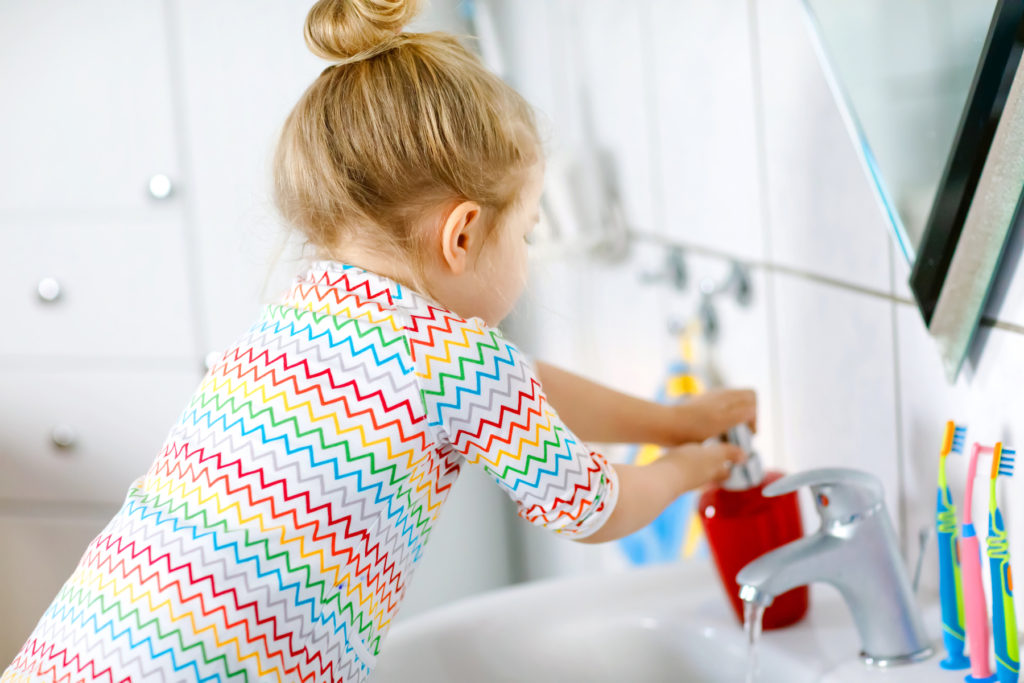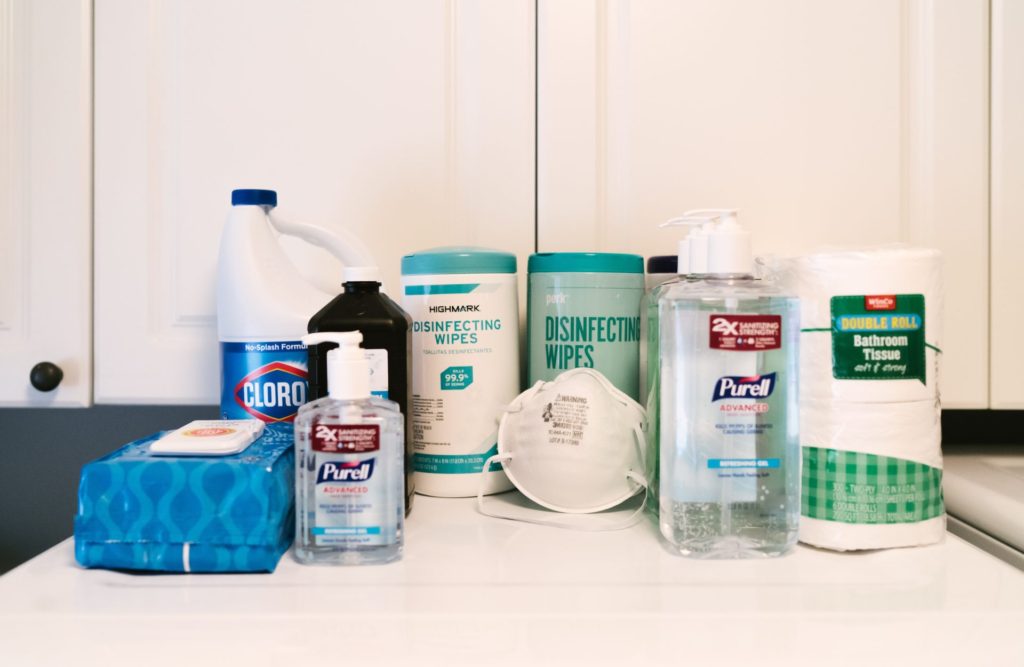
Can hand washing cause food allergies?
Covid has really changed the world in which we live but one thing we don’t know yet is if there will be long-term impact on our children’s health.
One habit that covid has lead to is increased hygiene. Our children are washing their hands more and using more antibacterial hand sanitisers. And this is all for good reason. Hand washing is one of the most effective ways to prevent transmission of coronavirus as well as other pathogenic microbes including viruses, bacteria, fungi and parasites that cause disease.
But is there a downside to hand washing or hand sanitisers? Is there such a thing as being too clean? And what impact does increased hygiene have on our children’s developing immune systems?
You may have heard that children raised with ‘too much hygiene’ can lead to a disordered immune system with an increased risk of atopic conditions like eczema, asthma and allergies. But let me explain what this really means and how it relates to covid.
A healthy immune system
A child’s immune system starts to develop before birth but it’s when they’re born and exposed to the world that it really ramps up. A newborn baby has an immature system putting them at higher risk of infections. As they grow and are exposed to microbes, their immune system develops. A microbe is any type of microorganism (virus, bacteria, parasite etc), some of which can make us sick (pathogenic or ‘bad’ microbes) others that we actually need (‘good’ microbes).
A healthy immune sytem develops when it can distinguish the good microbes from the bad and can then execute the right immune response. When this goes wrong, our children have a weak immune system, an overactive one or a misguided one. This can then lead to autoimmune conditons (e.g. diabetes, thyroid disease, celiac disease) or atopic conditions (e.g. eczema, asthma, food allergies). There have been endless studies trying to work out how and why things go wrong. And why the incidence of these conditions are on the rise.
The epidemic of eczema, asthma and food allergies
Atopic conditions (eczema, asthma, hay fever and allergies) have risen exponentially over the past few decades.
There is a clear genetic influence with atopic conditions running in families. For example if both parents have asthma, there’s a 60% risk of their child having it too. But when you look at how common these conditions have become, genes alone cannot explain it. Genes take thousands of years to shift, but the exponential rise has been over the past few decades.
I know when I was in school there was only one child in our school of 700 with a food allergy, now it’s so common that all schools are nut free! It’s currently estimated that 1 in 10 children will have a significant food allergy and up to 1 in 5 will have eczema.
Some have referred to this rise in atopic conditions as an epidemic. And because we know that this epidemic isn’t due to our genes changing, it has to be from the influence of the environment. The world we live in has changed and we’re struggling to adapt.
In 1989 the hygiene hypothesis was suggested as an explanation for this epidemic. This proposed that our babies lack exposure to certain microbes to effectively train their immune system. Children born today are often subjected to overly sterile environments, excessive antibiotic use and an entirely different diet to what we have evolved on. The problem is that this hypothesis has been misinterpreted and misquoted leading to some rejecting simple hygiene measures that we know saves lives.
So another term, the old friends hypothesis, was suggested in 2003. This focuses on the fact that humans have co-evolved with microbes that are needed to optimise our immunity. It clearly distinguished between bad microbes that cause disease and good microbes that promote health. It’s exposure to the good microbes that’s needed to optimise our immune system. And it’s these good microbes that form our gut microbiome and our skin microbiome.
Our children are exposed to the good microbes from mums during pregnancy and delivery and then from their environment and diet. This theory seems to fit as we learn more about how a healthy microbiome supports a healthy immune system and a healthy child.
So what does this have to do with covid and hand washing?

The question is really about if increased hygiene from covid will lead to less exposure to the good microbes.
Firstly I wanted to dispel any fears about hand washing with regular soap and water. This does not cause harm. It can aggravate eczema by drying the skin out but there is no evidence that this will damage the good microbes or lead to an increased risk of allergies. Hand washing is imperative and it saves lives.
When it comes to using hand sanitiser for our children, I’m a bit more skeptical. Using antibacterial soap or santisers is designed to kill microbes. The problem is that it doesn’t distinguish the good from the bad microbes. So there is a theory that it can also harm the good microbes that promote health. What’s on our hands generally enters our bodies. There is also the very real risk of poisoning with accidental ingestion by young children. Those little bottles lying around can look very tempting! And let’s also remember that studies have shown regular soap and water to be just as effective, sometimes even more effective, than gel sanitisers.
For my family I’ve tried to take a practical but cautious approach. We use regular soap and water but if we’ve no option we will use a hand sanitiser but then try rinse with water (even from a bottle) or use a water wipe. I’m not sure if this helps, but I’d rather try minimise risk.
Take home tips:
A child’s immune system develops best when exposed to good microbes found in their environment and foods
Atopic conditions (eczema, asthma, hayfever & allergies) indicate a disordered immune system
Atopic conditions have increased rapidly over the past few decades
Bad microbes that cause disease should be avoided
Antibacterials (including hand sanitisers) have the potential to harm the good microbes
Using regular soap and water for hand washing should be your first choice
Hand washing and basic hygiene saves lives
In my next blog I’ll discuss ways to try prevent atopic conditions.
If you found this interesting, please share it and subscribe to my newsletter.
